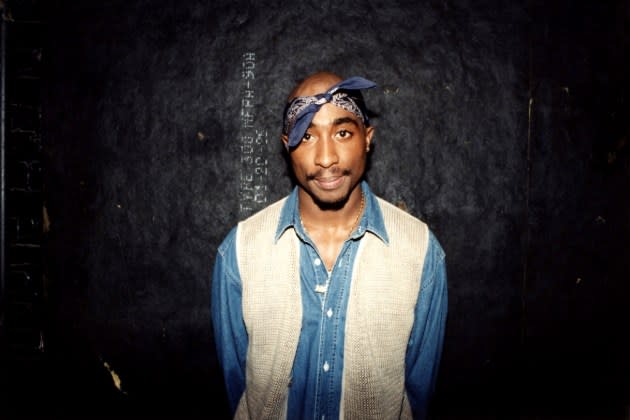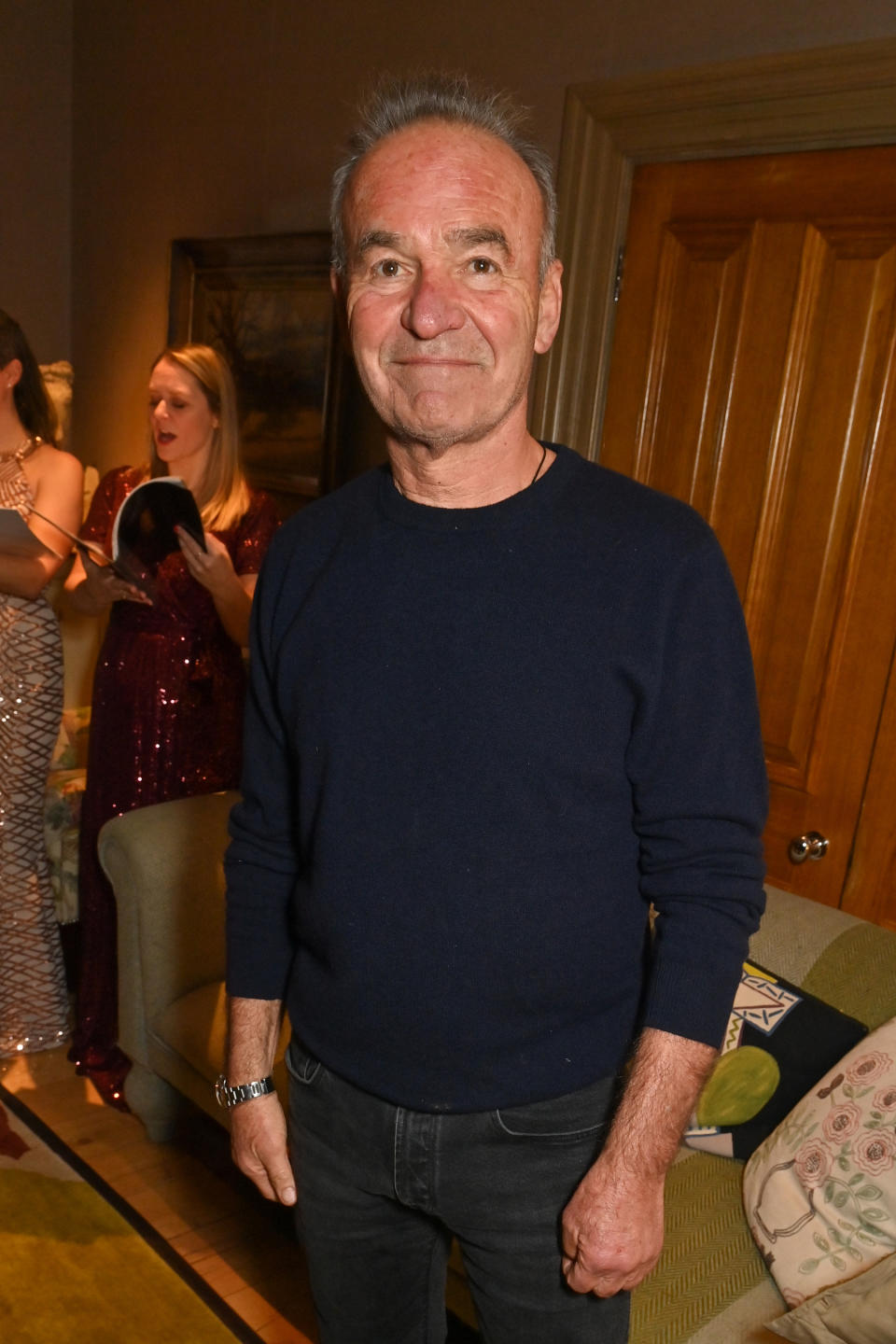‘Biggie & Tupac’ Director Admits Doc Got Tupac’s Murder Wrong
- Oops!Something went wrong.Please try again later.

The arrest of Duane “Keefe D” Davis, a former Southside Crips gang leader, in the murder of Tupac Shakur on Sept. 29, over 27 years after the legendary rapper’s killing in Las Vegas, sent shockwaves across the world. For over a decade, Keefe D had confessed that he’d ordered the murder, was in the car that pulled up next to the BMW carrying Tupac, and that his nephew Orlando Anderson, a fellow Crip who’d gotten into a scrap with Tupac hours earlier at the MGM Grand Hotel, had fired the fatal shots that killed Tupac in retaliation. This rationale was first publicized in reporter Chuck Philips’ two-part LA Times investigation, “Who Killed Tupac Shakur?,” and echoed by former LAPD detective Greg Kading in his 2011 book Murder Rap. (Anderson was shot to death nearly two years later, in May of 1998, at the age of 23.)
Two people responsible for pushing an alternate theory — that Suge Knight was the one responsible for Tupac’s killing because he thought he was leaving his Death Row Records — were the late Russell Poole, a former LAPD detective who’d been involved in the Rampart scandal and had investigated the murder of the Notorious B.I.G., aka Biggie Smalls, and Nick Broomfield, an acclaimed British documentary filmmaker responsible for the 2002 film Biggie & Tupac, and its follow-up, 2021’s Last Man Standing: Suge Knight and the Murders of Biggie and Tupac. Broomfield also told interviewers that he thought Suge Knight killed Tupac.
More from Rolling Stone
David and Victoria Beckham Break Silence on Affair Allegations in Documentary
Why Tupac's Alleged Killer Could Be Caught in a Legal 'Catch-22'
Penn & Teller on Giving Up Guns and Why Trump Is 'The End of America'
With the arrest of Keefe D, Broomfield tells Rolling Stone that he now believes the theory espoused in Biggie & Tupac is “incorrect.”
“I think that was incorrect,” he says of the Suge Knight theory in Biggie & Tupac. “That was in my first film. That was Russell Poole’s theory, and I believe he was incorrect. He believed that Suge Knight had ordered the murder because Tupac wanted to leave Death Row Records, which was indeed true [that he wanted to leave]. It was hard to believe, also, that Suge Knight would be sitting next to him [in the murder vehicle]. There were about twenty bullets shot at the car in a typical gangland killing. I think Russell Poole was wrong about that, but he was correct about the [Biggie] part.”
Indeed, one of the hail of bullets that night aimed at Tupac grazed Knight’s head. And Knight, for his part, recently told TMZ that he won’t testify against Keefe D, and insisted that the cops still don’t have the right guy who killed Tupac. Broomfield says that Tupac made a fatal mistake by getting into it with Anderson, a trigger man for the Crips, the night of his murder.
“If you’re a hit man, which Orlando Anderson was for the Crips, and someone abuses you, you kind of don’t have much alternative but to take revenge,” explains Broomfield. “And it was an unfortunate testament to Tupac’s naivete and ignorance — making pretend of being a gangster — that caused his death, because I think the other people knew what Orlando Anderson represented, and there was bound to be some kind of retaliation.”
Broomfield, who is 75, and about to release the new documentary The Stones and Brian Jones, about the life of the late Rolling Stones founder, believes that it took so long to arrest Keefe D in connection with Tupac’s killing because it will raise questions about the subsequent murder of Biggie Smalls — which Biggie & Tupac (and a number of other investigations) argue involved numerous members of the LAPD.

“I think the question is, why did it take them years after he’d confessed to Greg Kading, an LAPD officer, that he’d been in the murder vehicle and supplied the murder weapon to Orlando Anderson, to charge Keefe D?” asks Broomfield. “I think the reason is because once the murder of Tupac was charged and that was put to bed, the next question will be: Who killed Biggie Smalls in the retaliatory killing? And that was a much more contentious murder because it points to three LAPD police officers, at least two of whom were involved in that murder and were working for Suge Knight: David Mack, Rafael Pérez, and a guy called Amir Muhammad.”
He continues, “Obviously, it’s been extremely embarrassing for the LAPD, who haven’t wanted to investigate that particular murder. When Voletta Wallace, Biggie’s mom, brought a lawsuit against the Los Angeles Police Department, one of the first things that happened was the LAPD was fined $1 million by a high court judge for withholding evidence. I think they’ve gone out of their way to make it as difficult as possible for anyone to investigate that particular murder.”
In 2007, Voletta Wallace, Faith Evans (Biggie’s widow), and his children T’yanna Jackson and CJ Wallace filed an amended wrongful death lawsuit against the LAPD claiming that its corrupt officers were involved in Biggie’s death, and that his death cost $500 million in financial losses. The suit was dismissed in 2010. No one has yet been charged in the killing of Biggie Smalls.
Best of Rolling Stone

